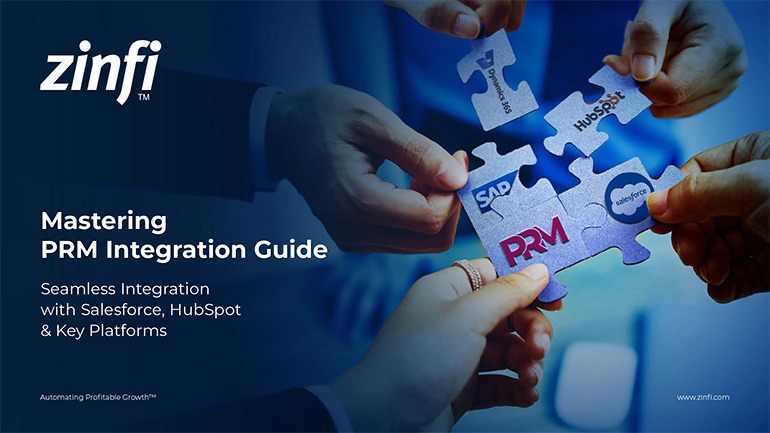Glossary - How to - Affiliate Marketing Tool
How to Choose the Right Affiliate Marketing Tool?
Introduction
Affiliate marketing has become a crucial strategy for businesses looking to expand their reach and increase sales. An affiliate marketing tool is a software solution that helps businesses manage their affiliate programs efficiently. These tools allow companies to track affiliate performance, manage commissions, and optimize their marketing campaigns.
In Partner Relationship Management (PRM), automating affiliate marketing processes ensures streamlined operations, increased partner engagement, and better revenue generation. A well-chosen affiliate marketing tool enhances affiliate tracking, commission management, and performance analytics, making it a vital component of any PRM strategy.
Key Takeaways:
Features to Look for in an Affiliate Marketing Tool:
Choosing the right affiliate marketing tool requires careful consideration of key features:
- Affiliate Tracking: Ensure the tool tracks real-time clicks, conversions, and commissions.
- Commission Management: Look for automated payout solutions with customizable commission structures.
- Performance Analytics: A dashboard with real-time insights helps measure campaign effectiveness.
- Integration Capabilities: The tool should integrate seamlessly with CRM, eCommerce, and marketing platforms.
- Fraud Prevention: Built-in fraud detection features prevent fraud and ensure fair compensation.
Benefits of Using an Affiliate Marketing Tool:
Investing in a high-quality affiliate marketing tool comes with several advantages:
- Automation of Tasks: Reduces manual workload by automating tracking and payments.
- Improved Partner Engagement: Keeps affiliates motivated with performance tracking and timely payments.
- Higher ROI: Optimized campaigns lead to better affiliate performance and higher revenue.
- Scalability: A robust tool grows with your business, allowing seamless onboarding of new affiliates.
- Enhanced Compliance Management: Ensures regulatory compliance with built-in legal and policy adherence features.
How to Implement an Affiliate Marketing Tool Effectively:
To maximize the impact of your affiliate marketing tool, follow these steps:
- Define Clear Goals: Establish objectives such as increasing traffic, boosting sales, or enhancing brand awareness.
- Choose the Right Software: Compare tools based on features, pricing, and user reviews.
- Onboard Affiliates: Provide training and support to ensure affiliates understand the platform.
- Monitor Performance: Use analytics to track key performance indicators (KPIs) and adjust strategies accordingly.
- Optimize Campaigns: Regularly test different marketing strategies to improve results.
Common Challenges in Affiliate Marketing and How to Overcome Them:
Running an affiliate program comes with challenges. Here’s how to tackle them:
- Fraudulent Activities: Use tools with built-in fraud detection to prevent fake leads and clicks.
- Low Affiliate Engagement: Regularly communicate, provide incentives, and offer ongoing training.
- Complex Payout Management: Automate commission payments to ensure accuracy and timely transactions.
- Tracking and Attribution Issues: Choose software with robust tracking features to ensure proper crediting of conversions.
- Compliance Risks: Stay updated on industry regulations and use software with compliance management features.
Best Practices for Long-Term Success in Affiliate Marketing:
To build a successful affiliate program, consider these best practices:
- Regularly Update Affiliate Offers: Keep incentives competitive to attract top-performing affiliates.
- Invest in Affiliate Training and Support: Educate affiliates on brand values, product details, and promotional tactics.
- Utilize Data-Driven Decision Making: Analyze affiliate performance data to optimize campaigns.
- Leverage Multi-Channel Strategies: Diversify marketing across social media, blogs, and email marketing.
- Build Strong Relationships with Affiliates: Offer personalized incentives and engage with affiliates to strengthen partnerships.
Summary of Key Takeaways:
- Select an affiliate marketing tool with essential tracking, analytics, and fraud prevention.
- Automating processes improves partner engagement and boosts ROI.
- Implementation strategies include defining goals, onboarding affiliates, and optimizing campaigns.
- Address common affiliate marketing challenges proactively to maintain efficiency.
- Follow best practices for sustained long-term affiliate program success.
Key Examples:
- Automotive Manufacturing: Car brands use affiliate tools to manage dealership partnerships, track leads, and reward successful referrals.
- Consumer Electronics: Brands like Apple and Samsung leverage affiliate tools to promote their latest gadgets through influencers and tech bloggers.
- Energy Production: Renewable energy companies use affiliate marketing to drive solar panel and wind turbine sales through green energy influencers.
- Financial Services: Banks and financial institutions utilize affiliate programs to attract new credit card signups and investment accounts.
- Food and Beverage: Restaurants and food delivery services collaborate with food bloggers and influencers to promote meal kits and dining experiences.
- Healthcare Services: Health and wellness companies use affiliate marketing to promote supplements, fitness programs, and telemedicine services.
- Information Technology: SaaS companies leverage affiliate marketing tools to track software referrals and increase subscription rates.
- Pharmaceutical Development: Pharmaceutical firms use affiliate tools to partner with health influencers and promote wellness products.
- Retail Industry: E-commerce platforms use affiliate marketing tools to track sales from fashion bloggers and social media influencers.
- Telecommunications: Telecom companies partner with affiliates to promote internet and mobile service plans, increasing customer acquisition.
Conclusion:
Selecting the right affiliate marketing tool is essential for businesses looking to efficiently expand their partner marketing efforts. Companies can maximize their affiliate program’s potential by focusing on key features, implementing best practices, and leveraging industry-specific strategies. Affiliate marketing automation is a key component of PRM, ensuring streamlined operations and improved affiliate engagement.
To achieve success in affiliate marketing:
- Define clear goals and choose a tool with the right features.
- Implement automation strategies for increased efficiency.
- Use data analytics to optimize and improve affiliate relationships.
- Address common challenges such as fraud, low engagement, and compliance risks.
- Regularly review and optimize affiliate marketing strategies for sustained growth.
By following these steps, businesses can build and maintain a successful affiliate program that drives growth and revenue.
Associated Keywords:















